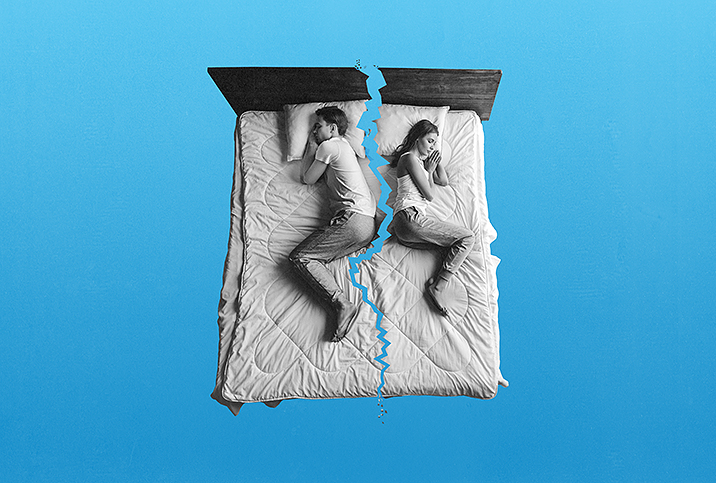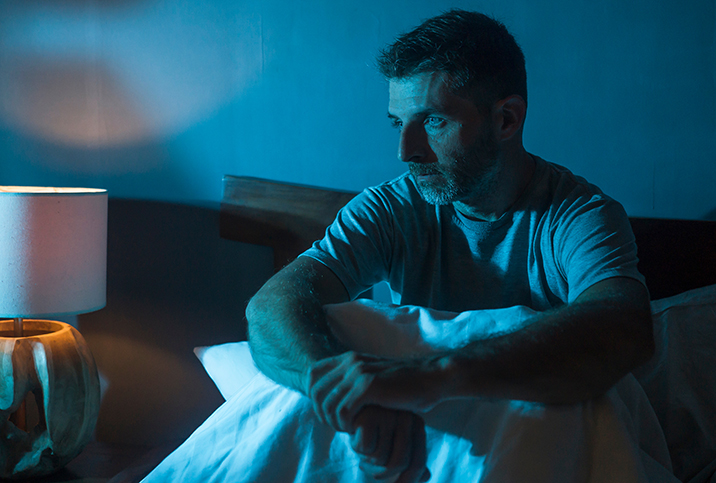Sleep & Sleep Disorders: Myths & Misconceptions

As essential to human health and wellness as sleep is, we should all be well versed in the facts about it, and its benefits. Despite sleep's importance, millions of Americans struggle on a regular basis to get an adequate amount of it. In fact, according to the National Sleep Foundation, almost 70 percent of Americans encounter frequent sleep problems.
So what gives? Though sleep disorders—such as sleep apnea, insomnia and restless leg syndrome—are relatively common, many often go undiagnosed because people fail to spot issues.
Here, we examine five common misconceptions about sleep and sleep disorders, and inform you as to what's really going on.
Myth: It's OK if I don't get a full night's sleep as long as I take a nap to make up for the lost hours of sleep.
Reality: Power naps definitely serve an important purpose from time to time, particularly when that midday fatigue hits shortly after lunch. Research has shown, however, that long and frequent naps can negatively affect your sleep patterns in the long run. When you take a nap that's too long, you run the risk of entering the REM cycle, a deeper stage of sleep. Waking up from a nap during which you entered REM is likely to leave you feeling more tired than you were before the nap. Furthermore, medical experts have found that sleeping during hours of darkness rather than during the daytime leads to higher quality sleep that provides more overall health benefits.
Myth: The longer I sleep, the more rested I will feel.
Reality: The National Sleep Foundation recommends that adults get seven to nine hours of sleep every night. It's not uncommon, however, to feel like you need more sleep than that when you're especially tired. However, studies have found that sleeping too much can be just as harmful to overall health as sleeping too little, and could be an indication of underlying health issues.
Myth: Snoring is nothing to worry about.
Reality: It's normal for people to lightly snore on occasion. But when a person snores loudly and on a regular basis, there might be an underlying sleep disorder involved. Chronic and loud snoring can sometimes be caused by sleep disorders such as obstructive sleep apnea, a condition that makes a person unable to get an adequate amount of oxygen during certain parts of the sleep cycle. So, if you find that you're snoring loudly on most nights, you should reach out to your doctor to be evaluated, especially if you have symptoms of morning headaches, severe dry mouth or excessive daytime fatigue. Together you can discuss potential treatment options.
Myth: The ability to quickly fall asleep at any time is a superpower.
Reality: If you've ever been around someone who seems to have the uncanny ability to fall asleep anywhere, at any time, in any circumstance, your reaction may have been one of awe and jealousy. But in reality, this type of behavior doesn't necessarily mean that the person is an exceptionally good sleeper. They may actually be someone who suffers from sleep deprivation and experiences excessive daytime sleepiness due to insomnia. In some cases, falling asleep frequently and unpredictably can be a sign of a sleep disorder called narcolepsy.
Myth: Sleep disorders aren't related to other health problems.
Reality: While there are certainly people who have sleep disorders that are not caused by other health conditions, research has found that health problems such as hypertension, diabetes, obesity and depression can contribute to insufficient and low-quality sleep. Sometimes, getting treatment for these conditions may lead to improved sleep.
There's no doubt that sleep is a vital part of staying healthy. If you are having trouble sleeping or think you might have a sleep disorder, don't hesitate to consult your doctor for help.

















